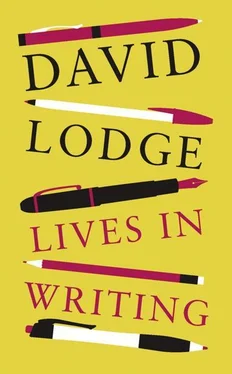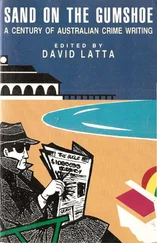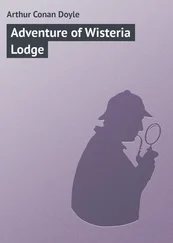‘Thinking people who were born about the beginning of this century are in some sense Wells’s own creation,’ George Orwell wrote in 1941 (‘Wells, Hitler and the World State’). Between the wars, however, his influence gradually declined along with the quality of his writing. The triumph of literary modernism in the 1920s made his fiction look old-fashioned, and the novels which have retained classic status, like The Time Machine, The War of the Worlds, Tono-Bungay and The History of Mr Polly , all belong to the first fifteen years of his long literary career. His mind remained fertile with new ideas — in the late 1930s, for instance, he proposed something he called the ‘World Brain’, an enormous bank of human knowledge stored on microfilm and distributed free to users by aeroplane, which needed only the invention of the microchip to resemble the internet — but the world paid diminishing attention to them. There was pathos in his own sense of this neglect in his last years, and in his deepening pessimism about the fate of the human race, epitomised in the title of his last book, Mind at the End of Its Tether (1945).
Wells was also a prophet of the sexual revolution of our own era. He believed in Free Love and practised it tirelessly. He was married twice to women he loved, but neither of whom satisfied him sexually, and had several long-term relationships and briefer affairs, mostly condoned by his second wife, Jane, and innumerable casual sexual encounters. Of particular interest because of the scandal they aroused were his relationships with three young women half his age: Rosamund Bland, the secretly adopted daughter of Edith and Hubert Bland, who was actually fathered by Bland on Edith’s companion and housekeeper, Alice Hoatson; Amber Reeves, a brilliant Cambridge undergraduate, also the daughter of prominent Fabians; and Rebecca West, then at the very beginning of her distinguished literary career, whom he invited to his Essex country house in 1912 to discuss her witty demolition of his novel Marriage in the feminist journal The Freewoman , a meeting which led in due course to the birth of Anthony West on the first day of the First World War, and a stormy relationship that lasted for some ten years. Amber Reeves also became pregnant by Wells, by her own desire, with dramatic consequences. There were interesting liaisons with the writers Dorothy Richardson (who portrayed Wells in her novel sequence Pilgrimage ), Violet Hunt and Elizabeth von Arnim. Then there was Moura, the Baroness Budberg, a Russian aristocrat who survived the Russian Revolution as the secretary and probably mistress of Maxim Gorky, whom Wells slept with one memorable night when staying in Gorky’s flat in Petrograd in 1920, and met again after the death of Jane in 1927. Moura was the great love of his later life, and his acknowledged mistress, but she refused to marry or cohabit with him. Wells has the reputation of being a predatory seducer, especially of women much younger than himself; but in all the relationships I investigated, with the possible exception of the always inscrutable Moura, he was initially the pursued rather than the pursuer.
This is not to deny that he was sometimes reckless or selfish in his amorous adventures, just as he was capable of pronouncements on eugenics and race which are morally repugnant to enlightened minds today. The last chapter of Anticipations (1902) is particularly shocking, declaring (in a poorly constructed sentence) that
. . the men of the New Republic. . will hold, I anticipate, that the small minority. . afflicted with indisputably transmissible diseases, with transmissible mental disorders, with such incurable habits of mind as the craving for intoxication — exists only on sufferance, out of pity and patience, and on the understanding that they do not propagate; and I do not foresee any reason to suppose that they will hesitate to kill when that sufferance is abused.
And as regards ‘those swarms of black, and brown, and dirty-white and yellow people. . I take it that they will have to go. . So far as they fail to develop sane, vigorous and distinctive personalities for the great world of the future, it is their portion to die out and disappear.’ 1
For these reasons I foresaw a danger in narrating the main story exclusively from Wells’s point of view, and introduced a critical perspective through what might be called, by analogy with interior monologue, ‘interior dialogue’. Just as young children sometimes handle their guilt or anxiety by engaging in conversation with an imaginary friend, so the aged Wells sometimes hears, and responds to, a voice which
. . articulates things he had forgotten or suppressed, things he is glad to remember and things he would rather not be reminded of, things he knows others say about him behind his back, and things people will probably say about him in the future after he is dead, in biographies and memoirs and perhaps even novels.
This device makes explicit the faults and follies of which Wells is often accused, while allowing him to defend himself. Most readers liked it, and a minority didn’t, but without it I couldn’t have written the novel. It is an invention on my part — I have no evidence that H.G. talked to himself in old age — but has some justification in that there is a similar dialogic element in several of his books, notably The Anatomy of Frustration (1936), where the controversial views of the principal character, plainly voicing H.G.’s opinions, are questioned sceptically by another character supposed to be the editor of the main text.
Representing sexual behaviour presents a special challenge for the writer of a biographical novel: how can you ascertain the facts about this most private and intimate aspect of a person’s life? It wasn’t a problem for me in the case of Author, Author , because I share the view of most of Henry James’s biographers that he was a celibate bachelor who repressed or sublimated his inherent homosexual tendencies. Wells was, in this respect, as in others, the antithesis of James. Fortunately, for my purposes, he wrote a secret ‘Postscript’ to his 1934 autobiography about his sexual life, to be published after he and the women mentioned in it were dead, and it eventually appeared in 1984, edited by his son Gip, under the title Wells in Love . This gave me the essential facts about the major relationships in his life, and a large number of minor ones, as well as invaluable information about his sexual development in childhood and adolescence. It contains only hints of his proclivities as a lover, but these could be supplemented from other sources, especially his passionate letters to Rebecca West.
Like most people who have studied Wells’s life and work, I came to the conclusion that he was riven with contradictions in principle and practice, but that he was also one of the most interesting and prodigiously talented figures in twentieth-century cultural history. The main problem for me was to find in a mass of fascinating material, including both his public and private life, a novel-shaped story, by which I mean one which has more cohesion and patterning than the faithful chronicle of a life can provide — ‘life being all inclusion and confusion, and art being all discrimination and selection’, as Henry James said in his Preface to The Spoils of Poynton , and as he also said in the Preface to Roderick Hudson :
Really, universally, relations stop nowhere, and the exquisite problem of the artist is eternally but to draw, by a geometry of his own, the circle within which they shall happily appear to do so.
Very early in the gestation of A Man of Parts I saw it as a companion piece to Author, Author , in which James would be a minor character as Wells had been in the earlier novel; but Wells’s life proved a greater challenge to fictional form than James’s. When I abandoned the idea of making his relationship with Edith Nesbit and her family the hub of the story, it was not immediately obvious how I could draw an elegant circle round Wells’s multitudinous interests and experiences. Gradually a solution evolved. There would be a frame story divided into two parts, very like the one in Author, Author , of Wells’s last years, beginning in 1944 and ending with his death in 1946, set mainly in his Blitz-battered Regent’s Park house, showing H.G. failing in health and morale, depressed by the negation of all his utopian hopes for mankind by the Second World War and the decline of his reputation as a writer, and bothered by the crisis in the marriage of Anthony, his son by Rebecca West, which was uncomfortably reminiscent of his own marital history. From this perspective he looks back at his life and asks himself whether it is a story of success or failure. Then between these two book-ends I would tell the story of the most interesting part of Wells’s life, from childhood to the mid-1920s, following the sequence of relationships with the women who meant most to him: his wives Isabel and Jane, Rosamund Bland, Amber Reeves, Rebecca West and Moura, showing how they affected, fed into, disrupted, and threatened at times to destroy his career as a writer and public man. There were symmetries and correspondences in this series of women: two wives whom he loved but found sexually incompatible; two brilliant young women half his age, Amber and Rebecca, with whom he had children; two — Rosamund and Amber — who had younger admirers, rivals to H.G., whom they eventually married at almost exactly the same time. These parallels would help to give the novel pattern, that combination of repetition and variation which is present in all art, as well as illustrating an obsessive-compulsive streak in H.G.’s character.
Читать дальше












